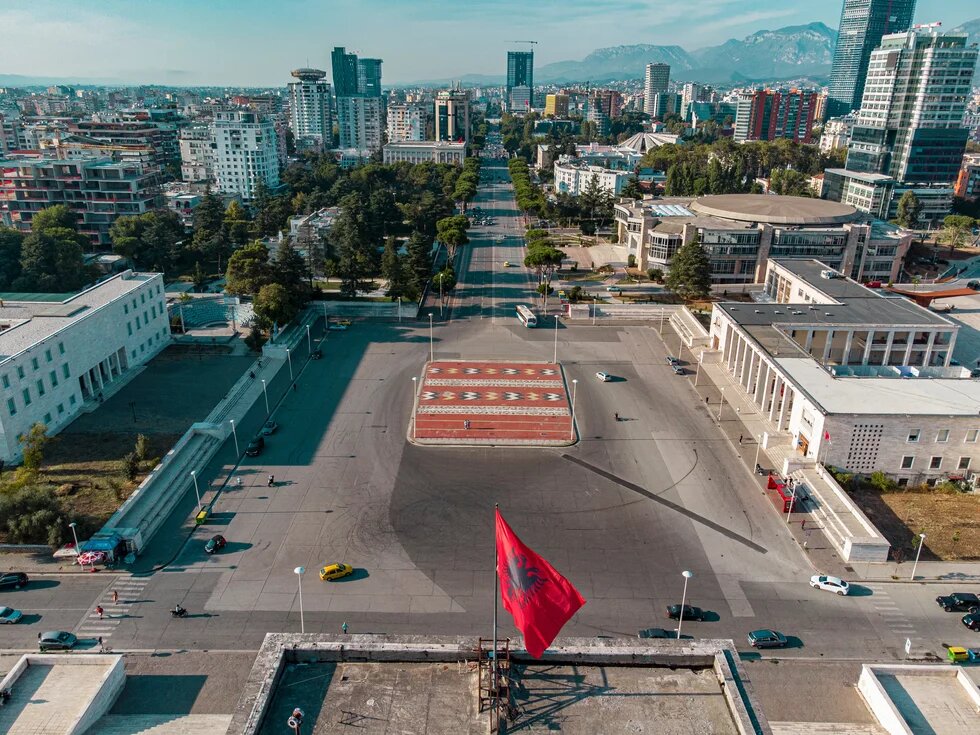The app ‘Aktiv1st’ is tracking the social media activity of Socialist Party members in Albania and ranking them according to engagement levels. The app has been particularly recommended to employees of central and local administration. This is just the most recent episode in a process of dramatic erosion of the lines that separate party and state. With the approach of the local elections on 14 May, the issue of public administration misuse is once again in the limelight. The EU, which is the largest donor and monitoring entity of the administration reform, should make much better use of its leverage.

For those who have grown a thick skin towards the political control of majority parties over their members, particularly with regard to pressuring those employed in public administration, the launch of the app ‘Aktiv1st’ in Albania just a few months before the local elections of 14 May 2023 was not much of a surprise. The app tracks the social media activity of Socialist Party members and supporters, rewarding them with points for all their likes and shares, and ranking them in a list to foster peer-to-peer competition.[1]
It is hard to find pinpoint at any regulations that could serve to formally denounce this practice as the excuse is that people download and engage the app out of their own volition. However, for people familiar with the pressure that an employee faces to keep his or her job in central and local administration, jobs with benefits and a certain amount of comfort in an otherwise poor and crises-hit economy, the “volition” is clear. In many instances, people who work for the administration report that their superiors continuously ask them to download the app and engage with it.
Civil society has already brought the case to the Commissioner for the Protection of Personal Data.[2] The app, according to IT experts, has serious issues concerning the guarantees required to safeguard personal information.
The app is just the most recent episode in a process of dramatic erosion of the lines that separate party and state. Several laws are already being broken without any repercussions, including some that prohibit the advertising made by public agencies in the electoral campaign period.[3]
Elections and public administration — a bad symbiosis
The use of public resources in campaigns is prohibited by law and has been punished by fines; however, the temptation to do so is quite high. These fines are considered a very small cost to pay in comparison to the benefits that they generate.
Having control over the virtual life of its supporters has become somewhat of an obsession for the Socialist Party. Many reports of people being asked to engage via social media through phone messages have been published in the media before. However, now the party strategists have found, through the software, a systematic way to streamline and collect information, and nudge people towards action.
Albania is already ranked as one of the countries with high levels of state capture.[4] The problems in securing a professional independent public administration have plagued the country throughout the democratic transition. The use of both public administration staff and resources/assets during electoral campaigns is only one part of the mechanism that ties them to the party in power. There is a resigned approach amongst the public regarding the notion that those who seek to be hired, promoted or safeguard their public jobs need to serve the party first, and the citizens later.
In the past, having infringed on the independence of the public administration, the government has collected a hefty sum of penalties from the national courts for firing those who don’t adhere to party membership or policy.
The preliminary OSCE/ODHIR Report on the local elections of 2023 in Albania states that ‘ODHIR observers express their grave concern about the possible widespread practice of misuse of administrative resources by the ruling party, including pressure on public servants. Also, many collaborators noticed an increase in the rate of employment in the public sector with short-term contracts covering the election period.’[5]
Albania needs a solid track record in public administration reform and in consolidating the independence and viability of democratic institutions.
Recommendations
- Parties, and especially leadership structures, should assume full responsibility of distancing themselves from practices of using the administration for their political purposes.
- The European Union and individual Member States that have heavily financed the public administration reform in Albania should call for the Socialist Party and the current government to respect all electoral law provisions and refrain from any practices that infringe on the public administration’s independence.
- The EU should publicly highlight the fact that this will be an issue that will be featured in the next Progress Report and that can negatively affect Albania’s integration process.
- Active donors should increase their support for civil society and independent media to monitor the campaign and elections, as well as make public the infringements regarding the existing electoral laws.
- Public administration should acquire knowledge with regard to the legal provisions that protect whistleblowers that would like to denounce publicly the pressure from any political parties.
This article was first published on ba.boell.org.
[1] https://balkaninsight.com/2023/02/14/concerns-raised-in-albania-over-ruling-party-communications-app/
[2] https://qq.com.al/index.php/2023/02/07/qendresa-qytetare-ankimon-partine-socialiste-per-cenim-te-te-dhenave-personale-te-qytetareve-ne-aplikacionin-aktiv1sti/


